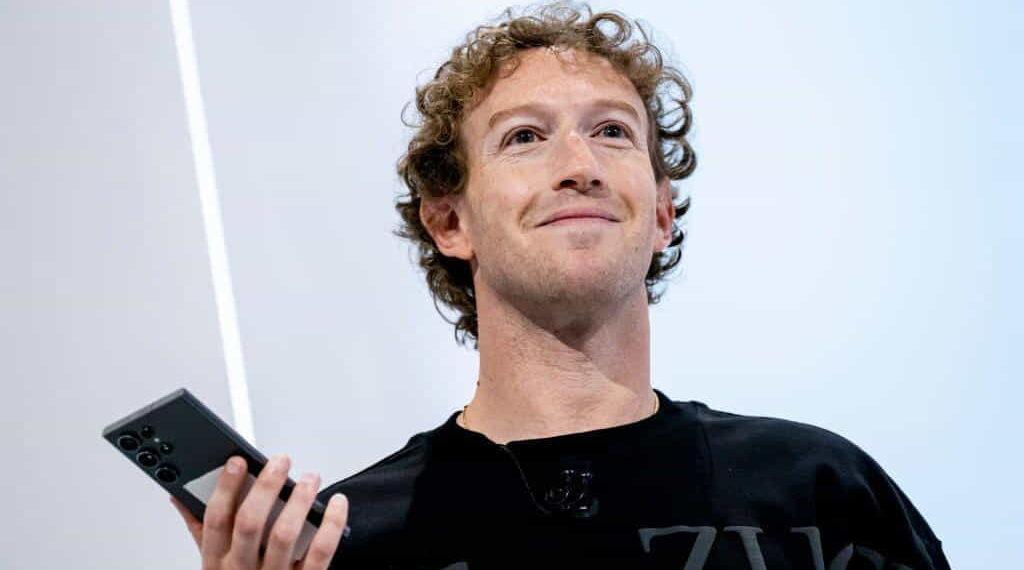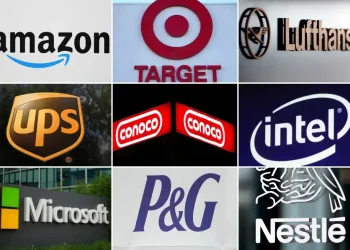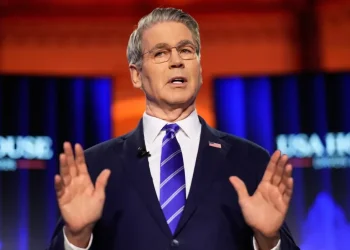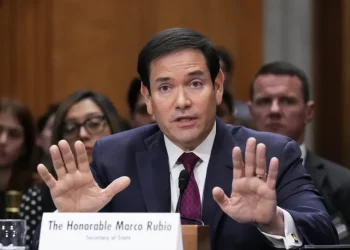Meta and Amazon Pull Back on Diversity Initiatives Amid Corporate Rollback
Meta and Amazon are scaling back their diversity programs, joining a growing number of corporate giants in the US that are halting hiring and training initiatives targeted at diversity. These moves, criticized by conservatives, come as companies navigate increasing legal and political challenges surrounding their diversity, equity, and inclusion (DEI) efforts.
Meta’s Shift: A Response to Legal and Political Pressures
Meta Platforms, the parent company of Facebook, Instagram, and WhatsApp, recently announced it would discontinue various diversity programs, including hiring, supplier diversity, and training initiatives. In a memo to staff, Meta cited a “shifting legal and policy landscape” as the main reason for the changes. Specifically, the company referenced a recent Supreme Court ruling on race in college admissions, and noted that the term “DEI” had become “charged” in current discourse.
Although Meta emphasized that it would still seek to hire a diverse workforce, it clarified that its approach would change. Instead of actively selecting from a diverse pool of candidates, Meta said it would focus on hiring based on skills and qualifications, regardless of race or background.
This decision follows a broader trend in corporate America, with companies such as Walmart and McDonald’s also scaling back their diversity efforts since the re-election of former President Donald Trump.
Amazon Follows Suit with a Focus on Proven Programs
Similarly, Amazon has begun winding down its diversity and inclusion initiatives. In a memo from December, Amazon’s VP of Inclusive Experiences and Technology, Candi Castleberry, announced that the company would phase out “outdated programs and materials” related to representation and inclusion by the end of 2024. Instead, Amazon plans to focus on initiatives with “proven outcomes” and prioritize fostering an inclusive culture throughout the organization.
These moves reflect a growing corporate trend, accelerated by Republican criticism of companies like BlackRock and Disney, which have been accused of engaging in “woke” progressive activism. High-profile boycotts targeting brands like Bud Light and Target, stemming from their efforts to engage with LGBTQ+ communities, have further intensified the backlash.
Legal and Political Backdrop: A Retreat from Post-2020 Efforts
The recent corporate pullback on diversity programs coincides with the rise of legal challenges to such initiatives. Many of the diversity, equity, and inclusion efforts in place today were introduced in response to the Black Lives Matter protests following the murder of George Floyd in 2020. However, recent court decisions have bolstered critics who argue that these programs are discriminatory.
In 2023, the Supreme Court ruled to prohibit private universities from considering race in admissions, and a separate court decision invalidated a Nasdaq policy requiring companies to have at least one woman, racial minority, or LGBTQ+ person on their board of directors. These rulings have fueled the growing pushback against DEI initiatives.
Meta’s Further Reductions and Changing Focus
In addition to scaling back its workforce diversity efforts, Meta also plans to end its work with “diverse” suppliers. Instead, the company will prioritize small and medium-sized businesses. Meta has also announced the cessation of “equity and inclusion” training, replacing it with programs designed to “mitigate bias for all, no matter your background.”
While Meta has yet to comment further on the memo, reactions have been swift. Conservative activist Robby Starbuck, who has campaigned against similar policies at companies like Ford and Harley-Davidson, expressed his satisfaction with the changes, saying, “I’m sitting back and enjoying every second of this.”
On the other hand, LGBTQ+ advocacy groups have strongly criticized the rollback. The Human Rights Campaign (HRC) argues that inclusive workplace policies help attract and retain top talent, contributing to long-term business growth. RaShawn “Shawnie” Hawkins, Senior Director of the HRC Foundation’s Workplace Equality Program, stated, “Those who abandon these commitments are shirking their responsibility to their employees, consumers, and shareholders.”
Meta’s Wider Political Shifts
Meta’s recent moves come just days after the company ended its controversial fact-checking program, which had been criticized by President Trump and other conservatives. In an interview with Joe Rogan, Meta CEO Mark Zuckerberg discussed his concerns about being the “arbiter of truth,” particularly after the 2016 election. He acknowledged that demands to remove certain content, such as statements about vaccine side effects during the pandemic, had become “unreasonable.”
Zuckerberg also expressed frustration with what he perceives as political pressure from the government, stating that he feels more confident about the policies Meta should adopt. He remarked that the US government should be defending tech companies rather than undermining them. “When the US does that to its tech industry, it’s basically just open season around the rest of the world,” he said.
Meta and Amazon Pull Back on Diversity Initiatives Amid Corporate Rollback
Meta and Amazon are scaling back their diversity programs, joining a growing number of corporate giants in the US that are halting hiring and training initiatives targeted at diversity. These moves, criticized by conservatives, come as companies navigate increasing legal and political challenges surrounding their diversity, equity, and inclusion (DEI) efforts.
Meta’s Shift: A Response to Legal and Political Pressures
Meta Platforms, the parent company of Facebook, Instagram, and WhatsApp, recently announced it would discontinue various diversity programs, including hiring, supplier diversity, and training initiatives. In a memo to staff, Meta cited a “shifting legal and policy landscape” as the main reason for the changes. Specifically, the company referenced a recent Supreme Court ruling on race in college admissions, and noted that the term “DEI” had become “charged” in current discourse.
Although Meta emphasized that it would still seek to hire a diverse workforce, it clarified that its approach would change. Instead of actively selecting from a diverse pool of candidates, Meta said it would focus on hiring based on skills and qualifications, regardless of race or background.
This decision follows a broader trend in corporate America, with companies such as Walmart and McDonald’s also scaling back their diversity efforts since the re-election of former President Donald Trump.
Amazon Follows Suit with a Focus on Proven Programs
Similarly, Amazon has begun winding down its diversity and inclusion initiatives. In a memo from December, Amazon’s VP of Inclusive Experiences and Technology, Candi Castleberry, announced that the company would phase out “outdated programs and materials” related to representation and inclusion by the end of 2024. Instead, Amazon plans to focus on initiatives with “proven outcomes” and prioritize fostering an inclusive culture throughout the organization.
These moves reflect a growing corporate trend, accelerated by Republican criticism of companies like BlackRock and Disney, which have been accused of engaging in “woke” progressive activism. High-profile boycotts targeting brands like Bud Light and Target, stemming from their efforts to engage with LGBTQ+ communities, have further intensified the backlash.
Legal and Political Backdrop: A Retreat from Post-2020 Efforts
The recent corporate pullback on diversity programs coincides with the rise of legal challenges to such initiatives. Many of the diversity, equity, and inclusion efforts in place today were introduced in response to the Black Lives Matter protests following the murder of George Floyd in 2020. However, recent court decisions have bolstered critics who argue that these programs are discriminatory.
In 2023, the Supreme Court ruled to prohibit private universities from considering race in admissions, and a separate court decision invalidated a Nasdaq policy requiring companies to have at least one woman, racial minority, or LGBTQ+ person on their board of directors. These rulings have fueled the growing pushback against DEI initiatives.
Meta’s Further Reductions and Changing Focus
In addition to scaling back its workforce diversity efforts, Meta also plans to end its work with “diverse” suppliers. Instead, the company will prioritize small and medium-sized businesses. Meta has also announced the cessation of “equity and inclusion” training, replacing it with programs designed to “mitigate bias for all, no matter your background.”
While Meta has yet to comment further on the memo, reactions have been swift. Conservative activist Robby Starbuck, who has campaigned against similar policies at companies like Ford and Harley-Davidson, expressed his satisfaction with the changes, saying, “I’m sitting back and enjoying every second of this.”
On the other hand, LGBTQ+ advocacy groups have strongly criticized the rollback. The Human Rights Campaign (HRC) argues that inclusive workplace policies help attract and retain top talent, contributing to long-term business growth. RaShawn “Shawnie” Hawkins, Senior Director of the HRC Foundation’s Workplace Equality Program, stated, “Those who abandon these commitments are shirking their responsibility to their employees, consumers, and shareholders.”
Meta’s Wider Political Shifts
Meta’s recent moves come just days after the company ended its controversial fact-checking program, which had been criticized by President Trump and other conservatives. In an interview with Joe Rogan, Meta CEO Mark Zuckerberg discussed his concerns about being the “arbiter of truth,” particularly after the 2016 election. He acknowledged that demands to remove certain content, such as statements about vaccine side effects during the pandemic, had become “unreasonable.”
Zuckerberg also expressed frustration with what he perceives as political pressure from the government, stating that he feels more confident about the policies Meta should adopt. He remarked that the US government should be defending tech companies rather than undermining them. “When the US does that to its tech industry, it’s basically just open season around the rest of the world,” he said.
A Sign of Broader Corporate Trends
Meta and Amazon’s decisions are part of a larger pattern of corporate retreat from diversity initiatives, a shift that is increasingly influenced by legal rulings and political pressure. As companies reassess their DEI strategies, the future of diversity programs in the corporate world remains uncertain. Some see this as a victory for conservatives, while others worry that abandoning such initiatives could harm both employees and businesses in the long run.
Meta and Amazon’s decisions are part of a larger pattern of corporate retreat from diversity initiatives, a shift that is increasingly influenced by legal rulings and political pressure. As companies reassess their DEI strategies, the future of diversity programs in the corporate world remains uncertain. Some see this as a victory for conservatives, while others worry that abandoning such initiatives could harm both employees and businesses in the long run.
This article was rewritten by JournosNews.com based on verified reporting from trusted sources. The content has been independently reviewed, fact-checked, and edited for accuracy, neutrality, tone, and global readability in accordance with Google News and AdSense standards.
All opinions, quotes, or statements from contributors, experts, or sourced organizations do not necessarily reflect the views of JournosNews.com. JournosNews.com maintains full editorial independence from any external funders, sponsors, or organizations.
Stay informed with JournosNews.com — your trusted source for verified global reporting and in-depth analysis. Follow us on Google News, BlueSky, and X for real-time updates.













